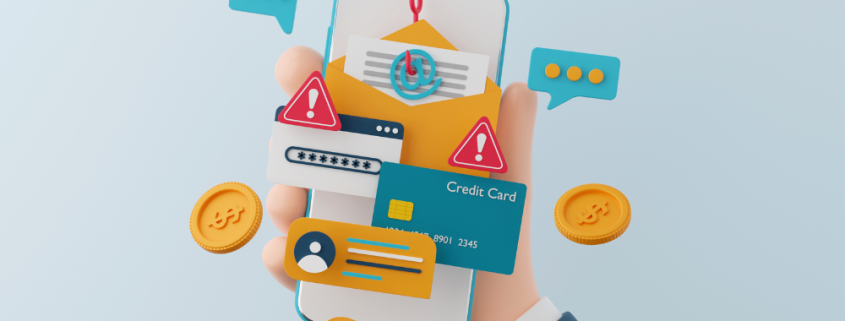Sharing Too Much Personal Information Could Put You At Risk Of Identity Crime

In our increasingly digital world, protecting financial information from identity crimes is paramount. Identity theft, fraud, and cyberattacks pose significant risks to your financial well-being.
To safeguard your assets and personal information, it’s crucial to be proactive and adopt robust security measures. Here are some essential steps to protect yourself from identity crimes that exploit financial information:
Secure Your Personal Information
Start by safeguarding your personal information. Store important documents, such as passports, Social Security cards, and financial statements, in a secure and locked location. Be cautious about sharing sensitive information online or over the phone, especially with unknown individuals or entities.
Use Strong Passwords and Authentication
Create strong, unique passwords for your online accounts, including financial institutions, email, and social media. Consider using a reputable password manager to generate and store complex passwords securely. Enable two-factor authentication whenever possible to add an extra layer of protection.
Monitor Your Financial Accounts
Regularly review your bank statements, credit card statements, and investment accounts for unauthorised transactions or discrepancies. Early detection of unusual activity can prevent further financial damage.
Protect Your Devices
Ensure your computer, smartphone, and other devices are equipped with up-to-date antivirus and anti-malware software. Regularly update your operating system and applications to patch security vulnerabilities.
Beware of Phishing Scams
Be cautious about unsolicited emails, messages, or phone calls requesting personal or financial information. Phishing scams often impersonate reputable organisations. Verify the authenticity of any communication before sharing sensitive data.
Shred Financial Documents
Dispose of financial documents and statements securely by shredding them before disposal. Dumpster diving is a common method identity thieves use to access personal information.
Use a Secure Wi-Fi Connection
Avoid conducting financial transactions or accessing sensitive accounts over public Wi-Fi networks, as they may not be secure. Instead, use a virtual private network (VPN) or your mobile data connection when accessing financial information on the go.
Educate Yourself
Stay informed about the latest identity theft and fraud schemes. Familiarise yourself with common tactics used by cybercriminals to protect yourself from falling victim to their scams.
Identity crimes that target financial information can have devastating consequences, including significant financial losses and damage to your credit.
By protecting your personal and financial data, you can reduce the risk of becoming a victim of identity theft and ensure your financial well-being remains secure.




